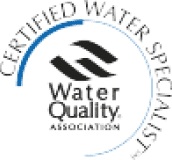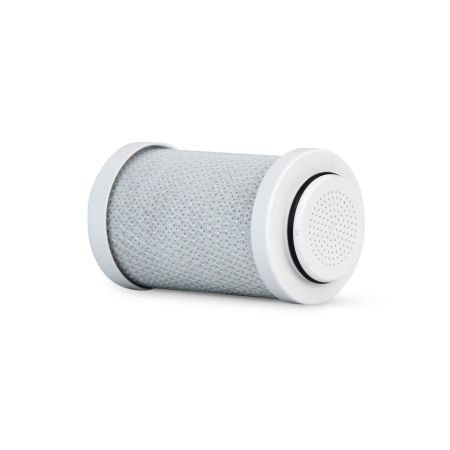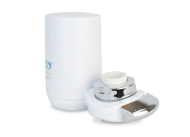- Removes offensive tastes and odors caused by chlorine disinfection chemicals
- Solid activated carbon block cartridge adsorbs toxic radon, pharmaceuticals, pesticides and industrial chemicals like TCE and benzene (solvents)
- Coffee, tea, sports drinks, fruit beverages and ice cubes will be crystal clear and taste noticeably better
- Removes sediment, rust particles, insect fragments and other gritty contamination
The WECO AWC201 Faucet Mount Filter is manufactured using virgin coconut-based activated carbon. The highly adsorptive surface area and unique pore size distribution of coconut shell activated carbon is regarded as the best type of activated carbon for water purification and residual chlorine disinfectant removal. Coconut shell carbon has a much higher micropore volume compared to other types of activated carbon. This provides a greater surface area and higher porosity. Activated coconut shell carbon provides about 50% more micropore surface area than bituminous coal-based activated carbon. This high porosity and extended surface area gives coconut shell carbon a much greater capacity to adsorb small organic molecules such as VOCs. To increase adsorption capacity the carbon is ground to a powder powdered and compressed into a porous solid block. Compared with granular activated carbon cartridges, the higher efficiency of the solid block and greater number of carbon particles per cubic centimeter allows the cartridge to remove more pollutants using a much shorter contact time. The combination of the uniform structure between the individual particles of carbon and high surface area enables the WECO filters to achieve higher effectiveness in contaminant removal. The 5-micron structure of the carbon block increases the contact time between the water and the filter media, further increasing the block’s ability to remove contaminants. WECO AWC201 Filters remove taste and odor-causing chemicals like chlorine, hydrogen sulfide (rotten egg odors), geosmin (earthy/musty taste & odors) and poisonous radon. The chlorine disinfection process reacts with natural organic compounds in water, causing the formation of cancer-causing byproducts called trihalomethanes (THMs).
| UPC | 810388030731 |
|---|










